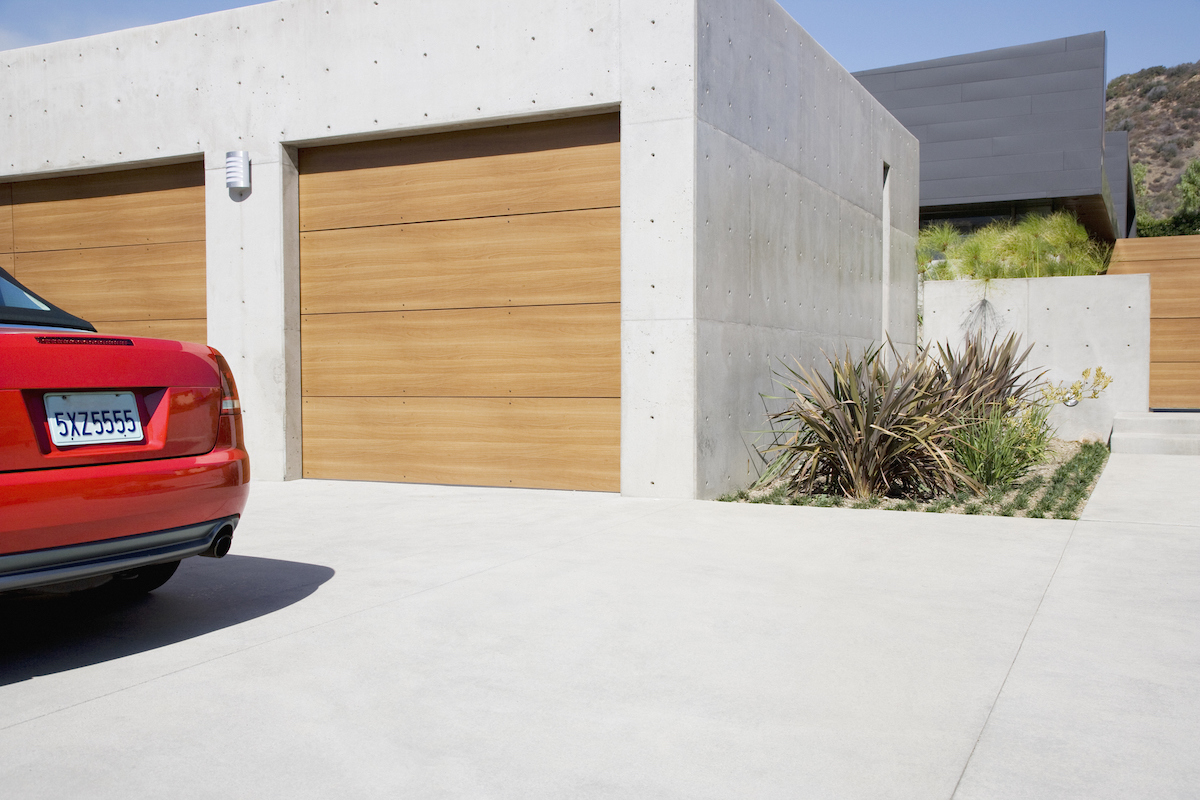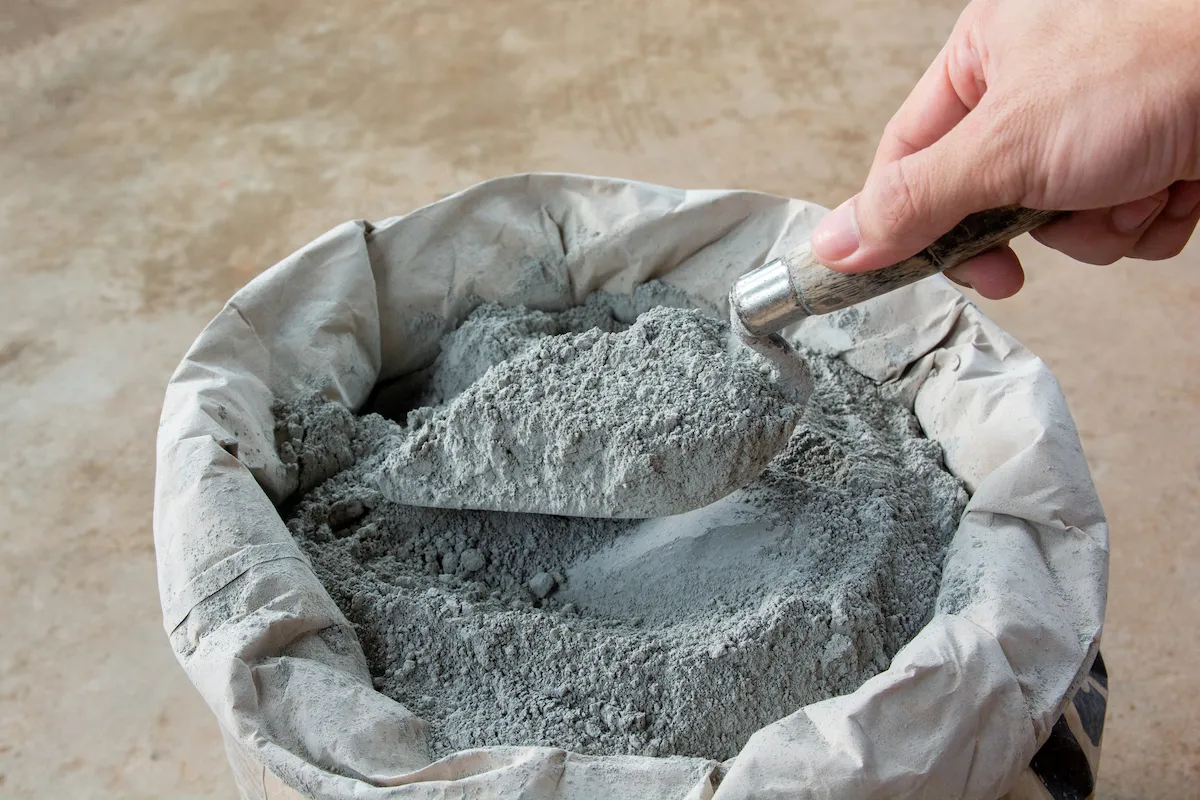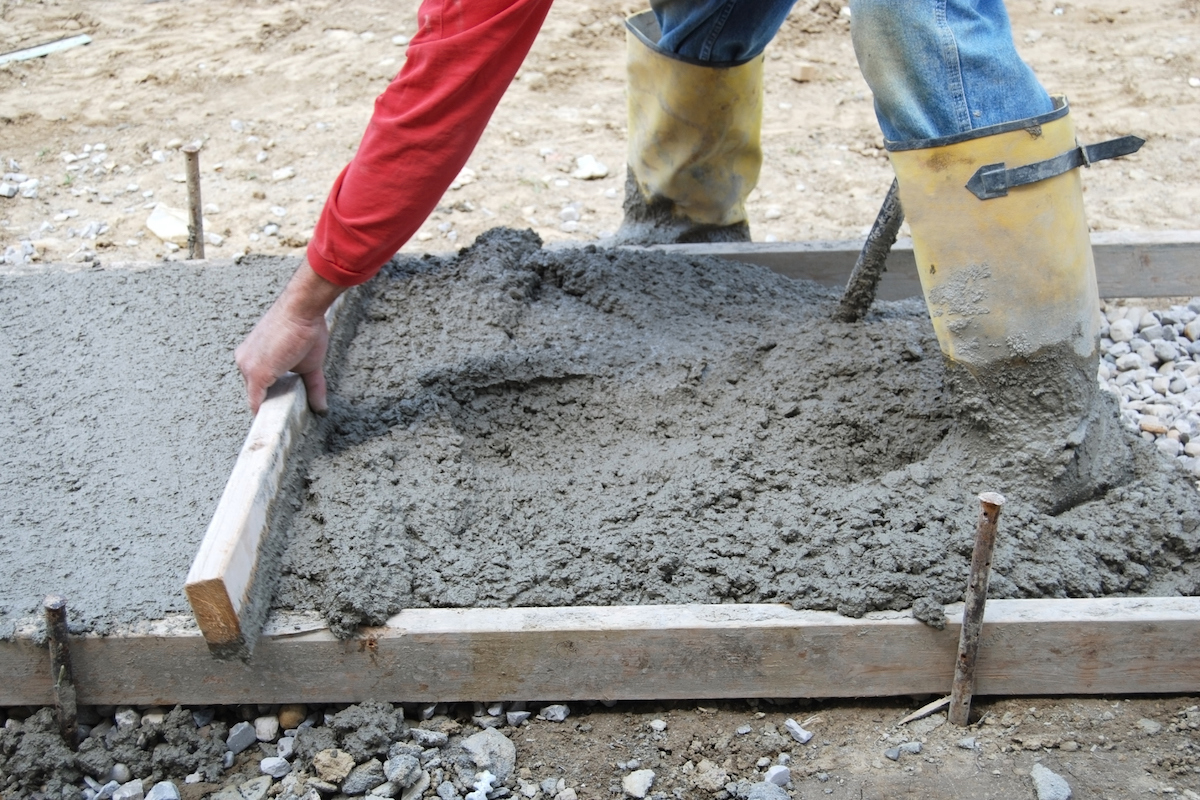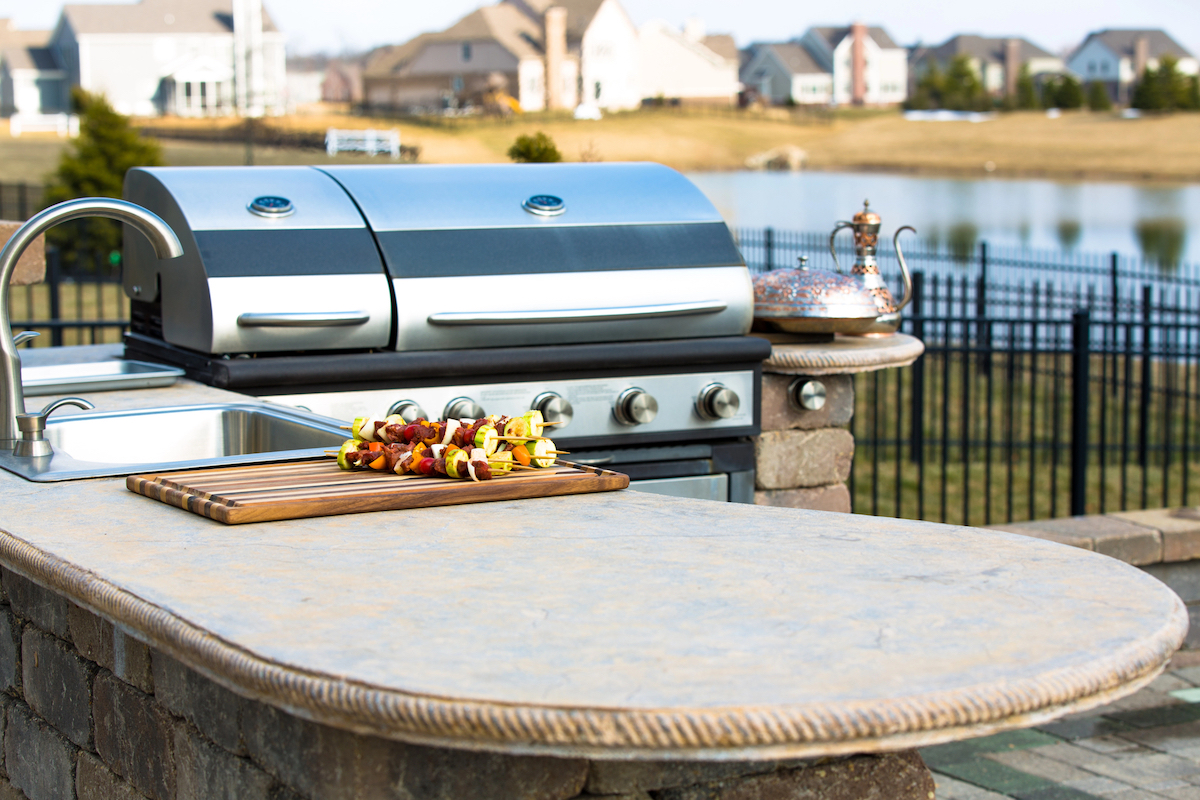

We may earn revenue from the products available on this page and participate in affiliate programs. Learn More ›
Cement and concrete are commonly mistaken for each other, but it’s important to know which is which. To help you remember, we’re detailing the differences: cement vs. concrete. After reading the following, you’ll have a clear understanding and become confident about choosing the right one for your next project.
What is Cement?

Cement is a binder manufactured from a mixture of iron, aluminum, silicon, calcium, and other substances that are found in limestone, shells, chalk, clay, iron ore, and silica sand. These “ingredients” are heated to a very high temperature to create a rock-like substance that is ground into an extremely fine powder called cement. (Cement is then mixed with water and aggregate to form concrete.)
- Modern cement was invented in the kitchen of an English bricklayer in the early 19th century.
- Cement can be mixed with water and used as a grout.
- Cement can be combined with plaster and water and applied to masonry surfaces to create a smooth surface. However, in some cases, applying this to masonry causes moisture to become trapped and cause damage.
What is Concrete?

Concrete is a mixture of cement, aggregate, and water. Globally, concrete is among the most widely used construction materials in both residential and commercial applications. Its appeal includes the fact that the components to make it are almost universally available as well as the fact that its strength and durability make it a practical and desirable building material.
- Aggregates such as sand, stone, and gravel make up about 75 percent of concrete.
- The water used to create concrete must be very clean, even drinkable.
- The aggregate materials, too, must be very clean, because any contamination of organic materials can compromise the strength of the concrete.
Differences Between Cement and Concrete
While the terms are often used interchangeably, cement and concrete are not the same thing. Infrequently used on its own, cement is actually an ingredient in concrete. For example, your home’s slab foundation is likely made of concrete, and the concrete was made with cement, plus other ingredients.
Key differences between cement and concrete:
- There is cement in concrete.
- Concrete is stronger and more durable than cement.
- Concrete works well in larger projects, while cement is more often used as an ingredient in smaller jobs.
- Home improvement stores offer many types of ready-to-mix concrete for a variety of projects.
Best Uses for Cement

Cement is used mainly as part of a mixture in smaller jobs like grouting and specialized masonry, and in the repair of cracked or crumbling concrete.
Best Uses for Concrete

Concrete is used to build schools, bridges, sidewalks, and countless other structures. But you don’t need a hard hat to have success with concrete. Amateur DIYers use it for DIY projects of all kinds, among them landscape edging, kitchen countertops, and front walkways.
FAQs
It depends on your project, but odds are you’ll need to use concrete. Pouring a patio in the backyard? Concrete. Setting posts for a fence? Concrete.
Driveways are typically made with concrete. (Concrete, of course, is composed of cement, aggregate, and water.) So, while you could say a driveway “contains” cement, you would more accurately say the driveway is made of concrete. Some long driveways may be constructed of asphalt, which is a softer material that breaks down more quickly.
Cement is used by itself in fairly narrow applications, primarily as a grout when mixed with water. It can also be used to repair cracks in concrete.
